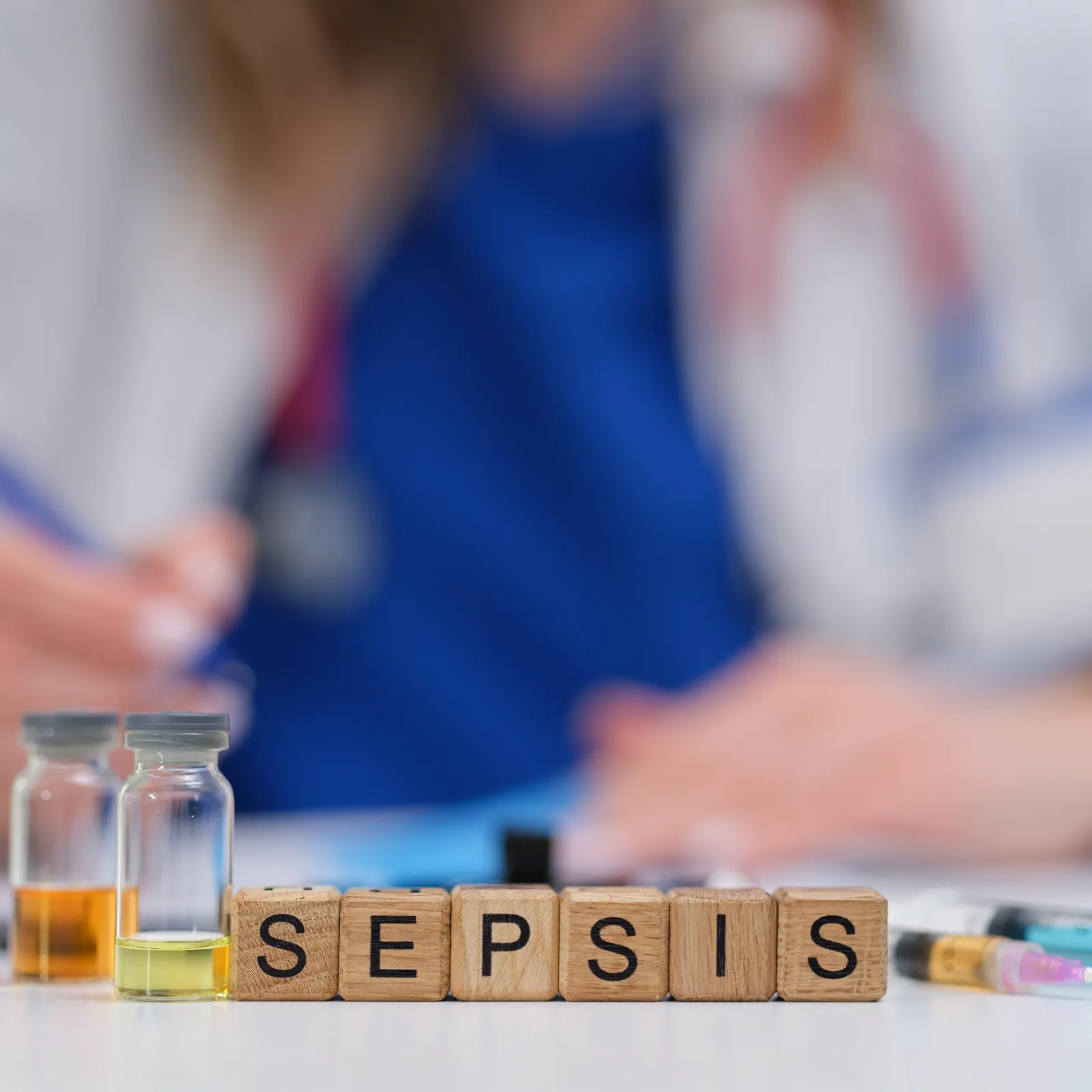04 Apr 2025
Recommended
Minimum 30 mins
Course
Access
Certification
Voiceover

Sepsis is a life-threatening condition caused by a dysregulated immune response to infection, resulting in organ dysfunction and potentially multi-organ failure. It is a major cause of morbidity and mortality, making early recognition and rapid treatment essential. This Sepsis Awareness and Management course provides healthcare professionals with the knowledge and skills to identify, assess, and manage sepsis across clinical environments. It aligns with current UK guidelines and initiatives, including those from NICE, the UK Sepsis Trust, and the Surviving Sepsis Campaign.
Key topics include recognising early signs, implementing the Sepsis Six bundle, appropriate antimicrobial use, fluid resuscitation, and timely escalation of care. The course also highlights the Surviving Sepsis Campaign, a global effort to reduce sepsis-related deaths. Additionally, it explores the role of human factors, documentation, ethical decision-making, and end-of-life considerations in the context of severe sepsis. This training aims to improve clinical outcomes and enhance patient safety in sepsis care.
 £20
£20
Learning Outcomes.
By the end of this course,participants will be able:
Define and describe sepsis, severe sepsis, and septic shock, explain the pathophysiology, and outline the epidemiology, burden, and risk factors associated with sepsis in the UK.
Recognise the clinical features and early warning signs of sepsis in different patient populations, differentiate sepsis from other acute conditions, and apply the National Early Warning Score 2 (NEWS2) to support timely identification and escalation of care.
Implement the Sepsis Six Bundle as part of the immediate management of sepsis, including oxygen therapy, IV access, blood investigations, empirical antimicrobial therapy, fluid resuscitation, and infection source control, in line with UK national guidelines.
Monitor and manage sepsis-induced organ dysfunction, identify deterioration, and determine when to escalate care to critical care teams, ensuring appropriate decision-making in special populations such as neonates, elderly, pregnant women, and immunocompromised individuals.
Apply infection prevention and control strategies, understand the role of human factors in sepsis management, and maintain accurate documentation to improve patient outcomes and enhance multidisciplinary collaboration.
Navigate ethical and end-of-life considerations in severe sepsis cases, ensuring compassionate communication with patients and families while making informed clinical decisions based on patient-centered care and legal frameworks.
Course
Contents.
01
Sepsis is a life-threatening organ dysfunction caused by a dysregulated immune response to infection, progressing through severe sepsis to septic shock.
03
Includes extremes of age, immunosuppression, chronic illness, recent surgery or hospitalisation, and invasive procedures.
05
Common sources include respiratory, urinary, abdominal, and skin infections, with variations across age groups and patient populations.
08
Involves timely administration of oxygen, blood cultures, IV antibiotics, IV fluids, lactate measurement, and urine output monitoring.

06
Early signs include fever, confusion, low blood pressure, rapid heart rate, and increased respiratory rate.
09
Ongoing assessment of organ function, clear criteria for involving critical care, and managing high-risk populations are essential.
02
Sepsis represents a major public health issue, contributing significantly to morbidity, mortality, and healthcare costs in the UK.
04
Involves an overwhelming immune response to infection, leading to inflammation, tissue damage, and potential multi-organ failure.
07
The National Early Warning Score 2 supports early detection by identifying physiological changes indicative of sepsis.
10
Accurate record-keeping, ethical decision-making in severe cases, and infection prevention practices are key components of sepsis care.
The Sepsis Awareness and Management course is designed for healthcare professionals to enhance their knowledge and skills in recognising, assessing, and treating sepsis effectively, in accordance with the latest UK guidelines. The course explores the pathophysiology of sepsis, early warning signs, and risk factors, with a strong emphasis on using the NEWS2 scoring system for prompt identification. Participants engage with key interventions from the Sepsis Six bundle, including fluid resuscitation, timely antimicrobial therapy, oxygen support, and infection source control.
 Summary
Summary


